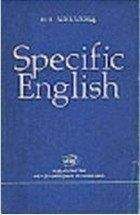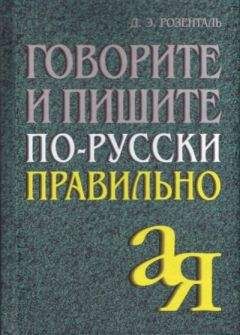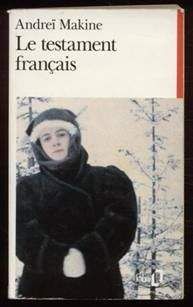II. Переведите следующие предложения на русский язык.
1. Calvin shrugged that away. 2. He told himself that he was unreasonable, he tried to laugh himself out of such pathos. 3. A man could gamble himself to poverty and still be a gentleman, but a professional gambler could never be anything but an outcast. 4. But she shrugged off her momentary annoyance. 5. She would serve tea and delicious sandwiches and leisurely gossip the hours away. 6. Dixon waved him to silence. 7. She smiled a welcome. 8. «He was sunk,«said Wylie, «but I laughed him out of it.» 9. Dr Czinner put his hand under Coral’s elbow and insinuated her out of the compartment. 10. She stepped to the ground and smiled her thanks to John Wilkes. 11. I’m going to drink myself to death. 12. She let him hold her so for a minute, and then shrugged him off. 13. The Swanns had departed on holiday. She had waved them off. 14. At home somebody would be laughed out of such childish conduct. 15. And she too wanted to rise in greater anger and cry him down. 16. I told him that St Thomas Aquinas had bothered too about that very question and he’d better worry it out for himself. 17. «What an embarrassing question!» I said, trying to laugh it off. 18. He handshook his way through the crowds. 19. She revenged herself by screaming the place down and by telling the neighbours what a brute he was. 20. Mr Warburton smiled his approval. 21. He confided to Suzanne his ambition to marry his daughter into the aristocracy.
III. Переведите следующие предложения на русский язык. Обратите внимание на употребление глаголов to talk, to speak, to think в значении переходных.
1. Will was talking common sense. 2. «Oh, shut up!» she cried, feeling a momentary intense relief at being able to speak her feelings. 3. She loved horses and talked horses constantly. 4. I should not write those words. I should not even think them. 5. Alex talked riddles. 6. He disliked talking business with her. 7. The truth at last. Talking love and thinking money. 8. Melly and he were always talking such foolishness, poetry, and books and dreams and moonrays and star dust. 9. He was confused and spoke his thoughts as they came to him. 10. Think practical thoughts, will you?
IV. А. Переведите следующие предложения. Укажите, в каких случаях глагол to show является переходным, в каких нет. Обратите внимание на его многозначность.
1. Show me your hands. 2. Is he showing any strain? 3. He wanted to know what movie was showing on the flight. He said, could I get him another flight which was showing the same movie as the first one? 4. The little old lady sat comfortably relaxed, hands folded daintily in her lap, a wisp of lace handkerchief showing between them. 5. The effect of sleepless nights showed quickly in his work. 6. The priest opened the doors, and they showed again the front garden of evergreens and all. 7. You’ve seen pictures of the clothes worn in Victorian times, haven’t you? Skirts right down to the ground, not even the ankles showing? 8. As before, it took several minutes for Cindy to come to the telephone, and when she did, surprisingly, there was none of the fire she had shown during their previous conversation, only an icy chill. 9. Warren Trent walked stiffly into the bathroom now, pausing before a wall-width mirror to inspect the shave. He could find no fault with it as he studied the reflection facing him. It showed a deep-seamed, craggy face. 10. The house was very pretty, and beautifully built. But it showed all signs of the eleven children. 11. He showed a scar on his forehead as the result of a wound. 12. He was wearing a shirt, a pair of white trousers, and gym shoes through which one big toe showed. 13. The old man hummed to himself, glancing sideways at what the fire showed of the black torn cloth. 14. Pink classical facades peeled off and showed the mud beneath. 15. The schooner showed no light and the doctor only saw it in the darkness because he knew that it was there. 16. His glance showed him a man of about forty-five with short dark hair. 17. The village showed between luxuriant elms.
Б. Переведите на английский язык, употребляя глагол to show.
1. Я покажу вам, как это надо делать. 2. Он проявлял сильное нетерпение. 3. Она устала, и это было видно. 4. Из открытого окна была видна широкая лужайка. 5. Работа в ночную смену (The effect of the night shifts) сказывалась на его здоровье. 6. На картине было изображено тихое голубое озеро. 7. Он был немного обижен, и, возможно, это отразилось у него на лице. 8. В его гладких черных волосах не было видно и признаков (traces) седины. 9. Она мечтала. Об этом говорили ее глаза.
В. Переведите следующие предложения, обращая внимание на употребление глагола to sound.
1. Another shot sounded. 2. Jane’s voice sounded scandalised. 3. She sounded happy, almost breathless. 4. Hank sounded puzzled. 5. It sounds like a good idea to me. 6. That sounds more like you. 7. He laughed. «You sound like a woman.» 8. You sound so hard and bitter. 9. Wonderful why some nurses felt they had to sound like official bulletins. 10. You don’t sound a very warm follower yourself. 11. It sounded a very callous way to put it, but there it was, and it was perfectly natural.
Г. Переведите на английский язык, употребляя глагол to sound.
1. Раздался еще один взрыв. 2. Это звучит очень мило и по-женски (feminine). 3. Вы говорите так печально. 4. Вот это больше похоже на тебя. 5. Это всегда казалось мне пустой тратой времени. 6. По голосу вам можно дать лет 18. 7. Вы говорили так убедительно.
Д. Переведите на русский язык, обращая внимание на употребление глагола to look.
1. Don’t look at him. 2. I know I’m looking like hell. 3. It looks like rain. 4. Elliott in his well-cut dinner jacket looked elegant as he alone could look. 5. He was a very learned man, but he didn’t look it any more than he looked like my idea of a monk. 6. You don’t look an old man.
E. Переведите на английский язык, употребляя глагол to look.
1. Он смотрел прямо на меня. 2. Вы выглядите чудесно. 3. Это платье не очень тебе идет (не смотрится на тебе). 4. Он неважно выглядит. 5. Похоже на то, что будет дождь. 6. Вам можно дать лет 16. 7. Изабел казалась очень хорошенькой.
Ж. Переведите следующие предложения, обращая внимание на употребление глагола to feel.
1. How do you feel? 2. I felt her trembling. 3. I’m not feeling well. 4. Feel the cloth. It’s very soft. 5. You must feel very cold. 6. It didn’t feel right – a dentist’s room without some stained glass. 7. It felt just as it did at school when a bully I had been afraid of was turned out. 8. It feels like someone kisses me there. 9. There are moments when it gives you confidence to feel your fingers round the butt of a revolver. 10. His lips felt dry. 11. Just for a shock of a second it felt like treading on a snake. 12. The water felt good. 13. It was the first time in his life he felt cold and hot at the same time.
3. Переведите на английский язык, употребляя глагол to feel.
1. Я почувствовал, что краснею. 2. Ей, должно быть, очень жарко. 3. Он снова пощупал портфель. 4. У вас, должно быть, очень замерзли руки. 5. Как ты себя чувствуешь? 6. Я положил руку ей на голову. Волосы ее были такими мягкими и теплыми. 7. Ощущение было такое, будто мой сон сбывался наяву (to come true). 8. Тем временем он вынимал из чемодана одежду и быстро ее ощупывал. 9. На самом деле в больнице не было холодно, но казалось, что холодно.
И. Переведите следующие предложения, обращая внимание на употребление глагола to taste.
1. Taste the soup, please. 2. Nothing can possibly taste as heavenly as that. 3. «It tastes divine,» said Isabel. «It’s like mother’s milk. I’ve never tasted anything so good.»
4. That stuffing’s going to taste good.
К. Переведите на английский язык, употребляя глагол to taste.
1. Попробуйте-ка это вино. 2. Ты ни к чему не притронулась. 3. Пуддинг восхитителен (на вкус).
Л. Переведите следующие предложения, обращая внимание на употребление глагола to smell.
1. The soup smells good. 2. Smell the air. Isn’t there any fire? 3. You must try it, Gray, it smells of freshly mown hay and spring flowers. 4. It was a thick day, but the sea smelt good.
M. Переведите на английский язык, употребляя глагол to smell.
1. Понюхай рыбу. Мне кажется, она несвежая. 2. Как хорошо пахнут свежие огурцы!
4. Сказуемое – центр предложения
Как уже отмечалось, сказуемое в английском предложении является фактическим центром, к которому тяготеют все члены предложения. В частности, интересно отметить фиксированное место отрицания перед сказуемым, вне зависимости от того, к чему оно относится по смыслу.
We do not advocate the rights of black Africans in order to drive white Africans. Мы защищаем права черных африканцев не для того, чтобы изгнать белых африканцев.
«Не wasn’t born here,«Leo said. «He was born in New York.» «Он родился не здесь, – сказал Лео. – Он родился в Нью-Йорке».
Отсюда можно сделать вывод, что в русском предложении отрицание относится к слову, а в английском – к предложению. Следовательно, в английском языке отрицание синтаксическое, а в русском – морфологическое.
Показательным примером того, что в английском отрицательном предложении отрицание относится к предложению в целом, а не к отдельным его членам, является отнесение в сложноподчиненном предложении отрицания к главному предложению, тогда как по смыслу оно относится к придаточному.
I don’t think we’ve been to the theatre for two or three years. Думаю, что мы не были в театре в течение двух-трех лет. «Do you think he’ll pay the money back?» «No, I don’t think he will. (…) Нет, думаю, что не отдаст. Наречия неопределенного времени (often, never, ever и др.) также, как правило, непосредственно предшествуют сказуемому. Заметим здесь, что все это – количественные наречия, в отличие от качественных, которые ставятся обычно в конце предложения. Only, также будучи количественным наречием, ставится в большинстве случаев перед сказуемым, независимо от того, какое слово в предложении оно определяет (в русском языке место наречия только обусловлено смыслом).
I’ve only been along this road once. Этой дорогой я ездил всего один раз. It only blooms tonight. Он цветет только сегодня ночью.
Можно также предположить, что отнесение предлога в специальном вопросе в конец (What are you looking at?) и в бессоюзном придаточном определительном предложении в конец этого предложения (The book you are looking for is on my desk) объясняется тяготением предлога к глаголу-сказуемому (т. е. опять-таки к центру предложения), который этим предлогом управляет.
Но не только количественные наречия и предлоги тяготеют к глаголу-сказуемому. С ним также тесно спаяны и относящиеся к нему всякого рода определители. Так, в именном составном сказуемом, выраженном сочетанием глагола «to be + прилагательное», обстоятельства меры или количества вклиниваются между двумя компонентами сказуемого – между глаголом-связкой to be и предикативом, который они определяют.




